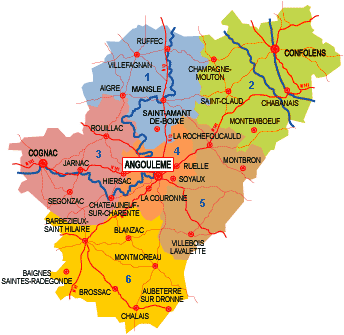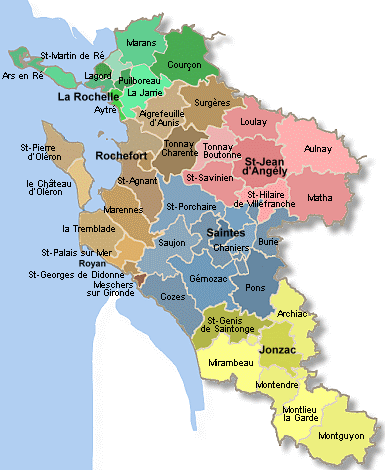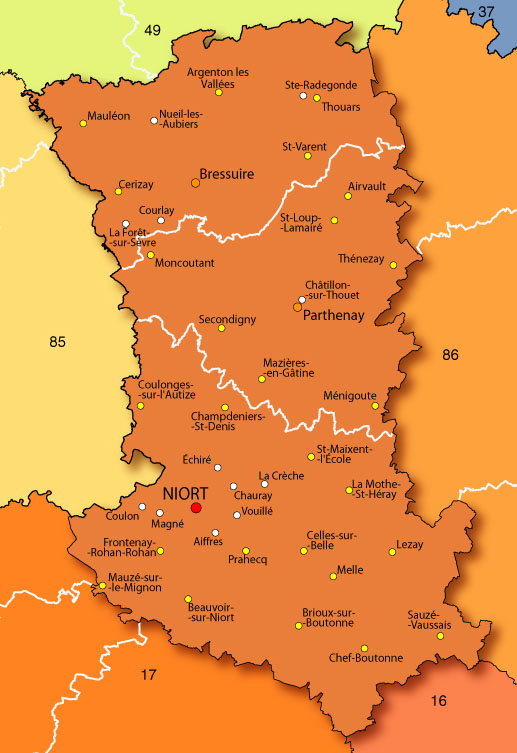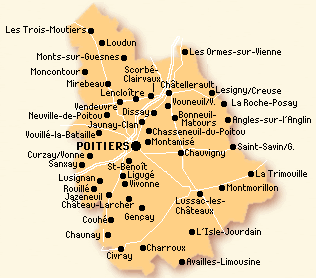|
Good Management is Science 2020-10-1014_22:30:33 +0000
11 Oct 2014 12:30 am | Anonymous
Management done properly satisfies Sir Karl Popper's (1902 – 1994) demarcation criteria for science, i.e. using models that make falsifiable or at least testable predictions. That was brought home to me by a book[1] by Douglas Hubbard on risk management where he advocated observationally constrained (falsifiable or testable) models for risk analysis evaluated through Monte Carlo calculations. Hmm, observationally constrained models and Monte Carlo calculations, sounds like a recipe for science.
Let us take a step back. The essence of science is modeling how the universe works and checking the assumptions of the model and its predictions against observations. The predictions must be testable. According to Hubbard, the essence of risk management is modeling processes and checking the assumptions of the model and its predictions against observations. The predictions must be testable. What we are seeing here is a common paradigm for knowledge in which modeling and testing against observation play a key role.
The knowledge paradigm is the same in project management. A project plan, with its resource loaded schedules and other paraphernalia, is a model for how the project is expected to proceed. To monitor a project you check the plan (model) against actuals (a fancy euphemism for observations, where observations may or may not correspond to reality). Again, it reduces back to observationally constrained models and testable predictions.
The foundations of science and good management practices are tied even closer together. Consider the PDCA cycle for process management that is present, either implicitly or explicitly, in essentially all the ISO standards related to management. It was originated by Walter Shewhart (1891 – 1967), an American physicist, engineer and statistician, and popularized by Edwards Deming (1900 – 1993), an American engineer, statistician, professor, author, lecturer and management consultant. Engineers are into everything. The actual idea of the cycle is based on the ideas of Francis Bacon (1561 – 1629) but could equally well be based on the work of Roger Bacon[2] (1214 – 1294). Hence, it should probably be called the Double Bacon Cycle (no, that sounds too much like a breakfast food).
But what is this cycle? For science, it is: plan an experiment to test a model, do the experiment, check the model results against the  observed results, and act to change the model in response to the new information from the check stage or devise more precise tests if the predictions and observations agree. For process management replace experiment with production process. As a result, you have a model for how the production process should work and doing the process allows you to test the model. The check stage is where you see if the process performed as expected and the act stage allows you to improve the process if the model and actuals do not agree. The key point is the check step. It is necessary if you are to improve the process; otherwise you do not know what is going wrong or, indeed, even if something is going wrong. It is only possible if the plan makes predictions that are falsifiable or at least testable. Popper would be pleased.
As a theoretical physicist who has gone over to the dark side and into administration, I find it amusing to see the techniques and approaches from science being borrowed for use in administration, even Monte Carlo calculations. The use of similar techniques in science and administration goes back to the same underlying idea: all true knowledge is obtained through observation and its use to build better testable models, whether in science or other walks of life.
[1] The Failure of Risk Management: Why It’s Broken and How to Fix It by Douglas W. Hubbard (Apr 27, 2009)
[2] Roger Bacon described a repeating cycle of observation, hypothesis, and experimentation. |
|
|
|
Origine des peuples du Poitou Charentes 2020-10-1114_00:00:00 +0200
11 Oct 2014 12:00 am | omni@neamar.fr (Nasnotnur)

Dans cet article nous parlerons de la région Poitou-Charentes (Charente, Charente-Maritime, Deux-Sèvres, Vienne).
- Charente
Préfecture : Angoulême

Le département a été créé à la Révolution française, le 4 mars 1790. Il a été formé autour de l'Angoumois et de son ancienne capitale, Angoulême, qui a été choisie pour être le chef-lieu.
On pense que la Charente fut habitée originairement par les Agesinates, tribu de la grande confédération des Santones.
Ils firent sans doute partie de l'antique expédition des Celtes en Italie et durent contribuer aussi à la fondation de Mediolanum, Milan.
Toutefois, malgré plusieurs dolmens encore debout dans le pays, il n'y a rien de bien certain ni de bien authentique dans les faits antérieurs à la conquête romaine.
- Charente-Maritime
Préfecture : La Rochelle

Les deux provinces d'Aunis et de Saintonge, qui ont formés la Charente-Maritime, faisaient partie du pays habité par les Santones.
Les Santons possédaient une capitale, Mediolanum, aujourd'hui Saintes.
Jules César trouva le pays occupé par les Kymris, qui avaient refoulé la nation des Galls derrière la grande chaîne de montagnes qui se prolonge diagonalement des Vosges à l'Auvergne.
César entrepris d'asseoir la domination romaine parmi ces populations qu'il défendit contre deux invasions des Helvétes et des Teutons.
Punis de leur complicité dans la révolte des peuples de l'Armorique par la perte d'une partie de leur flotte, les Santons s'associèrent aux patriotiques efforts de Vercingétorix et lui fournirent un contingent de 12 000 soldats.
La sanglante journée d'Alésia ne les découragea pas.
D'autres insurrections ayant succédé à ces tentatives, le gouvernement impérial essaya d'y mettre obstacle en détachant le territoire des Santons de la province lyonnaise et en l'enclavant dans l'Aquitaine seconde.
- Deux-Sèvres
Préfecture : Niort

Ce pays était habité par les Pictones, quand les Romains l'envahirent. Après avoir pris part à la lutte nationale, qui se termina par la chute d'Alésia et la défaite de Vercingétorix, ils se soumirent à César, et firent partie de l'Aquitaine, dont ils suivirent la fortune, tour à tour conquis par les Wisigoths et par les Francs. Au commencement du VIe siècle, saint Agapit et saint Maixent prêchèrent dans le pays la foi nouvelle, et y fondèrent une abbaye. Vers 732, les Sarrasins y parurent, mais pour être bientôt dispersés par Charles Martel.
Sous les Carolingiens, quand le pouvoir des grands vassaux se substitua, on vit se reproduire en petit, dans leur province, ce qui s'était passé dans le royaume. Les barons affectèrent vis-à-vis d'eux la même indépendance que les comtes affectaient eux-mêmes envers le roi des Francs, le Poitou ne fut plus que la réunion de seigneuries obéissant à des maîtres différents, soumises chacune à des lois et à des usages particuliers et trop souvent en guerre les unes contre les autres.
C'est alors que prirent naissance ces désignations de Niortais, de Bressuirois, de Mellois, souvenir rajeuni des subdivisions gauloises, qui donnaient à chaque canton ses frontières, son administration et sa petite capitale. Ce fractionnement était un obstacle à toute influence sérieuse des populations dans les grandes affaires du pays.
- Vienne
Préfecture : Poitiers

Ce pays était habité par les Pictones, dont le nom se transforma plus tard en celui de Pictavi, tribu importante de la nation gauloise.
Publius Crassus, pénétra le premier chez les Pictones, dont César en personne vint plus tard incorporer le territoire dans l'Aquitaine. Le Poitou s'associa aux efforts des provinces qui protestèrent avec Vercingétorix contre le joug de l'étranger, sous les murs d'Alise paya sa dette à la nationalité opprimée. Là, comme ailleurs, la politique habile des vainqueurs parvint à endormir pendant plusieurs siècles les ressentiments des vaincus.
Les bienfaits de la civilisation romaine firent oublier les hontes de la servitude. Les camps devinrent des villes, les vieilles cités s'embellirent, des voies de communication furent tracées et ouvertes. Cette transformation sociale était à peine accomplie que les Romains purent regretter de ne plus avoir pour alliés ou pour sujets que des esclaves à opposer aux nouveaux ennemis qui venaient leur disputer leurs conquêtes.
Après de longues années d'une résistance qui allait toujours mollissant, il fallut capituler avec ces barbares infatigables. L'ouest et le sud étaient devenus la proie des Wisigoths ; l'orgueil romain transi et, ne pouvant les chasser les accepta dans l'Aquitaine. Le partage de la souveraineté, c'était l'abdication.
La domination romaine s'efface, disparaît ; l'empire Wisigoth est fondé.
|
|
|
|
Physics Laboratory: Back to Basics 2020-10-1014_21:08:21 +0000
10 Oct 2014 11:08 pm | Anonymous
Dark matter – it's essential to our universe, it’s mysterious and it brings to mind cool things like space, stars, and galaxies. I have been fascinated by it since I was a child, and I feel very lucky to be a part for the search for it. But that’s not actually what I’m going to be talking about today.
I am a graduate student just starting my second year in the High Energy Physics group at UCL, London. Ironically, as a dark matter physicist working in the LUX (Large Underground Xenon detector) and LZ (LUX-ZEPLIN) collaborations, I'm actually dealing with very low energy physics.
When people ask what I do, I find myself saying different things, to differing responses:
- "I'm doing a PhD in physics" – reaction: person slowly backs away
- "I'm doing a PhD in particle physics" – reaction: some interest, mention of the LHC, person mildly impressed
- "I'm doing a PhD in astro-particle physics" – reaction: mild confusion but still interested, probably still mention the Large Hadron Collider
- "I'm looking for dark matter!" – reaction: awe, excitement, lots of questions
This obviously isn't true in all cases, but has been the general pattern assumed. Admittedly, I enjoy that people are impressed, but sometimes I struggle to find a way to explain to people not in physics what I actually do day to day. Often I just say, "it's a lot of computer programming; I analyse data from a detector to help towards finding a dark matter signal", but that still induces a panicked look in a lot of people.
Nevertheless, I actually came across a group of people who didn't ask anything about what I actually do last week, and I found myself going right back to basics in terms of the physics I think about daily. Term has just started, and that means one thing: undergraduates. The frequent noise they make as they stampede past my office going the wrong way to labs makes me wonder if the main reason for sending them away for so long is to give the researchers the chance to do their work in peace.
Nonetheless, somehow I found myself in the undergraduate lab on Friday. I had to ask myself why on earth I had chosen to demonstrate – I am, almost by definition, terrible in a lab. I am clumsy and awkward, and even the most simple equipment feels unwieldy in my hands. During my own undergrad, my overall practical mark always brought my average mark down for the year. My masters project was, thank god, entirely computational. But thanks to a moment of madness (and the prospect of earning a little cash, as London living on a PhD stipend is hard), I have signed up to be a lab demonstrator for the new first year physicists.
Things started off awkwardly as I was told to brief them on the experiment and realised I had not a great deal to say. I got more into the swing of things as time went by, but I still felt like I’d been thrown in the deep end. I told the students I was a second year PhD student; one of them got the wrong end of the stick and asked if I knew a student who was a second year undergrad here. I told him I was postgraduate and he looked quite embarrassed, whilst I couldn't help but laugh at the thought of the chaos that would ensue if a second year demonstrated the first year labs.

The oscilloscope: the nemesis of physics undergrads in labs everywhere
None of them asked what my PhD was in. They weren’t interested – somehow I had become a faceless authority who told them what to do and had no other purpose. I am not surprised – they are brand new to university, and more importantly, they were pretty distracted by the new experience of the laboratory. That’s not to say they particularly enjoyed it, they seemed to have very little enthusiasm for the experiment. It was a very simple task: measuring the speed of sound in air using a frequency generator, an oscillator and a ruler. For someone now accustomed to dealing with data from a high tech dark matter detector, it was bizarre! I do find the more advanced physics I learn, the worse I become at the basics, and I had to go aside for a moment with a pen and paper to reconcile the theory in my head – it was embarrassing, to say the least!
Their frustration at the task was evident – there were frequent complaints over the length of time they were writing for, over the experimental ‘aims’ and ‘objectives’, of the fact they needed to introduce their diagrams before drawing them, etc. Eyes were rolling at me. I was going to have to really try to drill it in that this was indeed an important exercise. The panic I could sense from them was a horrible reminder of how I used to feel in my own labs. It's hard to understand at that point that this isn't just some form of torture, you are actually learning some very valuable and transferrable skills about how to conduct a real experiment. Some examples:
- Learn to write EVERYTHING down, you might end up in court over something and some tiny detail might save you.
- Get your errors right. You cannot claim a discovery without an uncertainty, that's just physics. Its difficult to grasp, but you can never fully prove a hypothesis, only provide solid evidence towards it.
- Understand the health and safety risks – they seem pointless and stupid when the only real risk seems to be tripping over your bags, but speaking as someone who has worked down a mine with pressurised gases, high voltages and radioactive sources, they are extremely important and may be the difference between life and death.
In the end, I think my group did well. They got the right number for the speed of sound and their lab books weren't a complete disaster. A few actually thanked me on their way out.
It was a bit of a relief to get back to my laptop where I actually feel like I know what I am doing, but the experience was a stark reminder of where I was 5 years ago and how much I have learned. Choosing physics for university means you will have to struggle to understand things, work hard and exhaust yourself, but in all honestly it was completely worth it, at least for me. Measuring the speed of sound in air is just the beginning. One day, some of those students might be measuring the quarks inside a proton, or a distant black hole, or the quantum mechanical properties of a semiconductor.
I'm back in the labs this afternoon, and I am actually quite looking forward to seeing how they cope this week, when we study that essential pillar of physics, conservation of momentum. I just hope they don’t start throwing steel ball-bearings at each other. Wish me luck.
|
|
|
|
La Lune dans l'ombre d'un volcan 2020-10-1014_18:29:20 +0200
10 Oct 2014 06:29 pm | Anonymous
 10/10/2014 -
Cette photo montre l'éclipse de Lune du 8 octobre vue depuis l'observatoire Paranal au Chili, par l'un des responsable de l'optique, Guillaume Blanchard. Il s'agit d'un chapelet de plusieurs clichés pris avant le lever de Soleil. Un énigmatique trait sombre traverse le ciel, il s'agit probablement de l'ombre du volcan LLullaillaco qui se dessine sur l'atmosphère. La Lune située en partie dans l'ombre de Terre se trouve de façon logique dans le prolongement de l'ombre du Volcan. Perché à 6739 m, le LLullaillaco est le second plus haut volcan actif du monde. Il se trouve à cheval entre le Chili et l'Argentine, à environ 200 km de l'observatoire européen.JL Dauvergne, le 10 octobre 2...
|
|
|
|
Projet "Nouvelles biotechnologies pour la médecine" pour la valorisation des résultats de recherche (Médecine) 2020-10-1014 16:42 +0100
10 Oct 2014 05:42 pm | fm.be@adit.fr (BE République Tchèque)
Une dotation de 20 millions de couronnes (environ 740.000 euros) a été accordée sous forme de projet à trois groupes de l'Université Masaryk de Brno, dans l'optique de faciliter le transfert technologique des résultats de recherche vers le secteur pr... |
|
|
|
Une meilleure compréhension du cancer du pancréas (Médecine) 2020-10-1014 16:34 +0100
10 Oct 2014 05:34 pm | fm.be@adit.fr (BE République Tchèque)
Une collaboration internationale impliquant le groupe du Dr Pavel Vodicka de l'Institut de Médecine Expérimentale de l'Académie des Sciences a mené à une publication dans la revue Nature Genomics. Ces travaux, identifiant quatre nouvelles variations... |
|
|
|
Des nucléotides de synthèse pour une ADN polymérase plus efficace (Biologie) 2020-10-1014 16:32 +0100
10 Oct 2014 05:32 pm | fm.be@adit.fr (BE République Tchèque)
Les travaux du Prof. Hocek du Laboratoire de Chimie Bioorganique et Médicale des Acides Nucléiques, nés d'une collaboration entre l'Institut de Chimie Organique et Biochimie de l'Académie des Sciences et l'Université Charles de Prague, ont mené à la ... |
|
|
|
Les MOOCs au service de l'entrepreneuriat (Innovation et valorisation de la recherche) 2020-10-1014 16:12 +0100
10 Oct 2014 05:12 pm | fm.be@adit.fr (BE Etats-Unis)
Le MIT (Massachusetts Institute of Technology) a conclu fin aout 2014 une expérience d'enseignement hybride mêlant cours en ligne (type "MOOC" ou "Massive Open Online Courses") et cours traditionnels en classe qui pourrait bousculer les paradigmes du... |
|
|
|
Le Ministère japonais du commerce s'associe aux entreprises sur les technologies de véhicules autonomes (Technologies de l'Information et de la Communication) 2020-10-1014 16:06 +0100
10 Oct 2014 05:06 pm | fm.be@adit.fr (BE Japon)
Les secteurs publics et privés du Japon s'associent pour développer des technologies de détection de dangers pour une conduite plus souple des véhicules autonomes. Le Ministère de l'Economie, du Commerce et de l'Industrie (METI) va bientôt signer un ... |
|
|
|
Le Tokyo Institute of Technology devient membre d'edX pour proposer des formations en ligne (Technologies de l'Information et de la Communication) 2020-10-1014 16:05 +0100
10 Oct 2014 05:05 pm | fm.be@adit.fr (BE Japon)
Le site Internet de cours en ligne et de formations en lignes ouverte à tous (MOOCs) edX a annoncé le 30 septembre 2014 accueillir le Tokyo Institute of Technology comme nouveau membre. Avec le pseudo TokyoTechX, le Tokyo Institute of Technology va ... |
|
|
|
La compagnie japonaise NEC et le Conseil de développement économique de Singapour s'associent pour développer des stratégies pour la cybersécurité (Technologies de l'Information et de la Communication) 2020-10-1014 16:04 +0100
10 Oct 2014 05:04 pm | fm.be@adit.fr (BE Japon)
La compagnie NEC Corporation et les Conseil de développement économique de Singapour (EDB : Economic Development Board) vont s'associer pendant plusieurs années pour développer des stratégies pour la cybersécurité avec l'appui du programme STRAT (Str... |
|
|
|
|
|
|
|
|
Aucun commentaire:
Enregistrer un commentaire